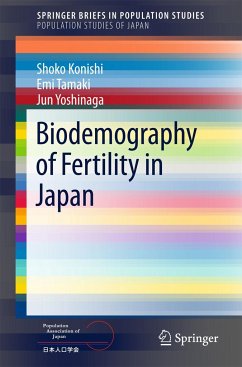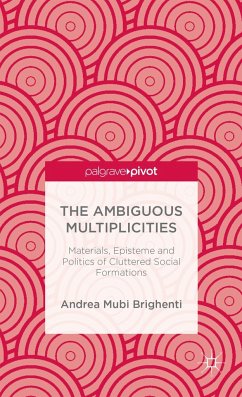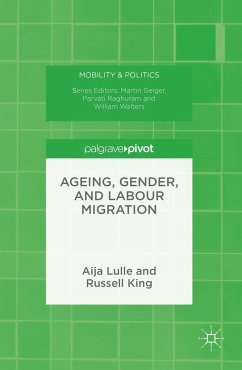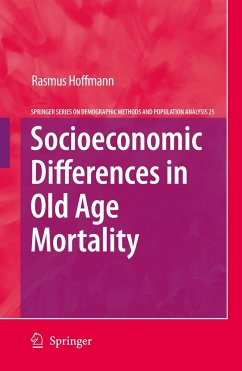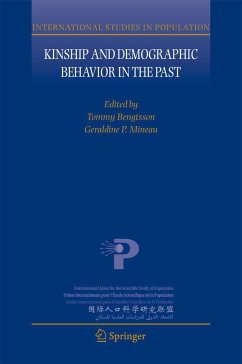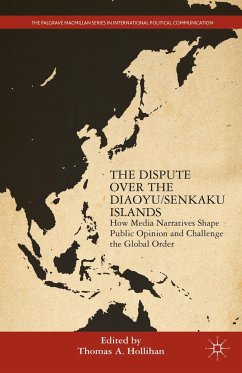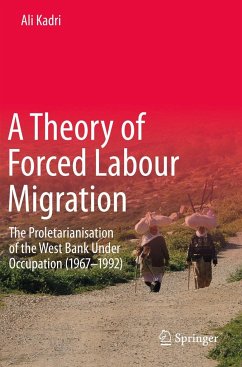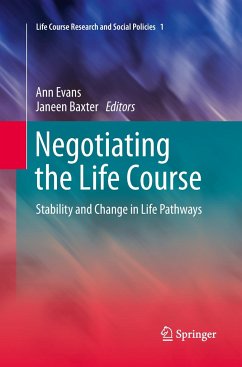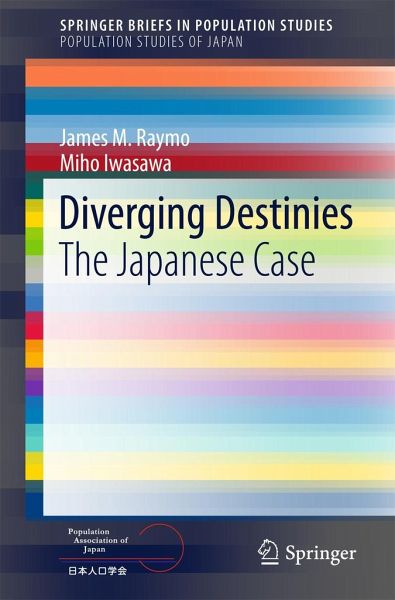
Diverging Destinies
The Japanese Case

PAYBACK Punkte
25 °P sammeln!
The overarching objective of this book is to summarize, extend, and update previous research on educational differences in family behavior in Japan. This is the first comprehensive treatment of the subject and the first to evaluate family differentials in Japan in the context of ideas articulated in research on "diverging destinies" and "patterns of disadvantage" as part of the second demographic transition. Much of the previous work in this area has been conducted by the authors (Raymo and Iwasawa), and the longer format of this book allows us to reexamine a wide range of family outcomes usin...
The overarching objective of this book is to summarize, extend, and update previous research on educational differences in family behavior in Japan. This is the first comprehensive treatment of the subject and the first to evaluate family differentials in Japan in the context of ideas articulated in research on "diverging destinies" and "patterns of disadvantage" as part of the second demographic transition. Much of the previous work in this area has been conducted by the authors (Raymo and Iwasawa), and the longer format of this book allows us to reexamine a wide range of family outcomes using newer data and to provide a thorough and systematic evaluation. The text uses multiple sources of data that cover a period of rapid family change (1970s through 2010s) to describe trends in educational differences in a wide range of family behaviors linked to the well-being of both parents and children. Descriptive analyses provide an overview of period and cohort trends in educational differences in age at first marriage, assortative mating, cohabitation, bridal pregnancy, divorce, remarriage, age at first birth, unintended childbearing, single motherhood, maternal employment, and family-related attitudes. Multivariate analyses provide insights into the processes underlying observed educational differences in family behavior. Patterns of educational differences in family behavior in Japan are evaluated with reference to findings from related research in the United States and other low-fertility Western societies.





